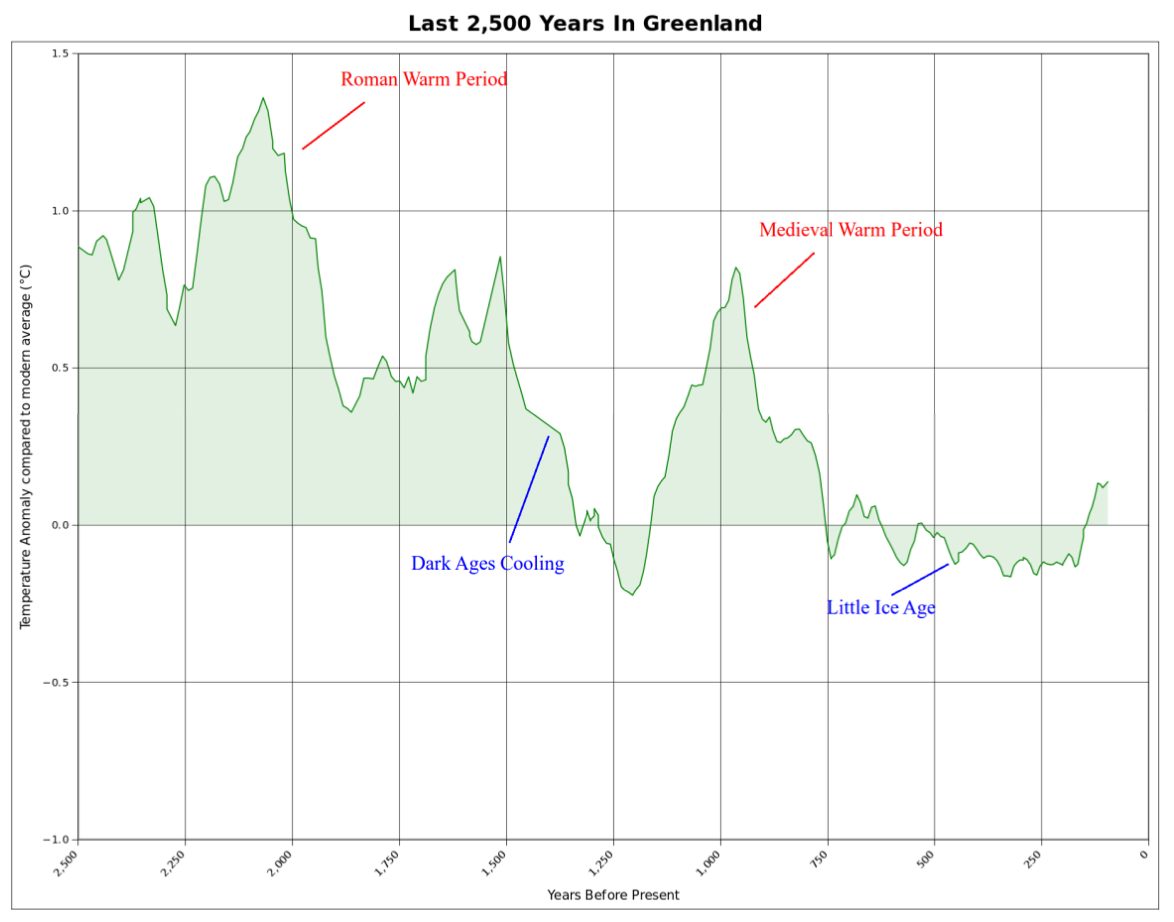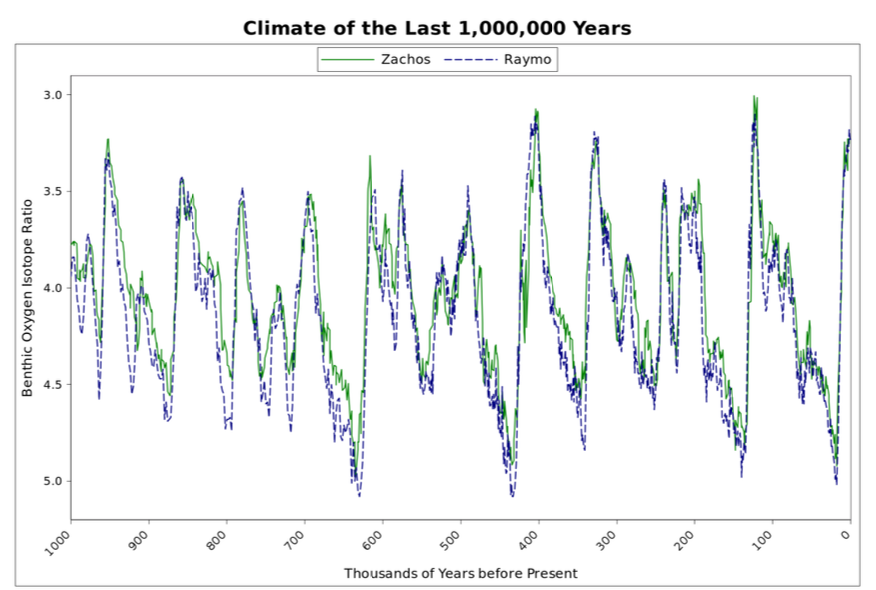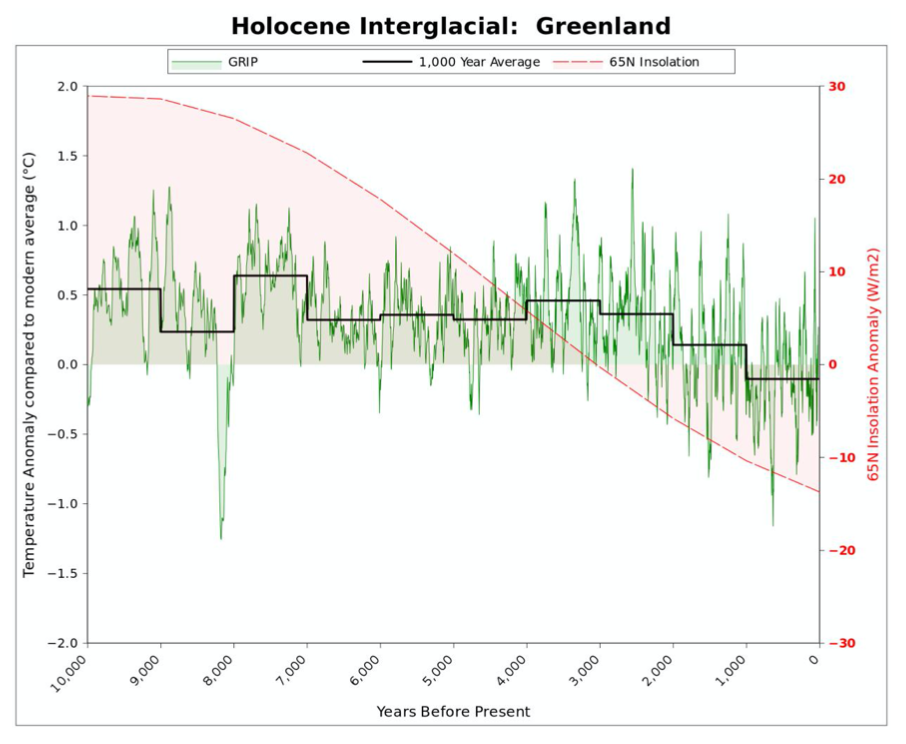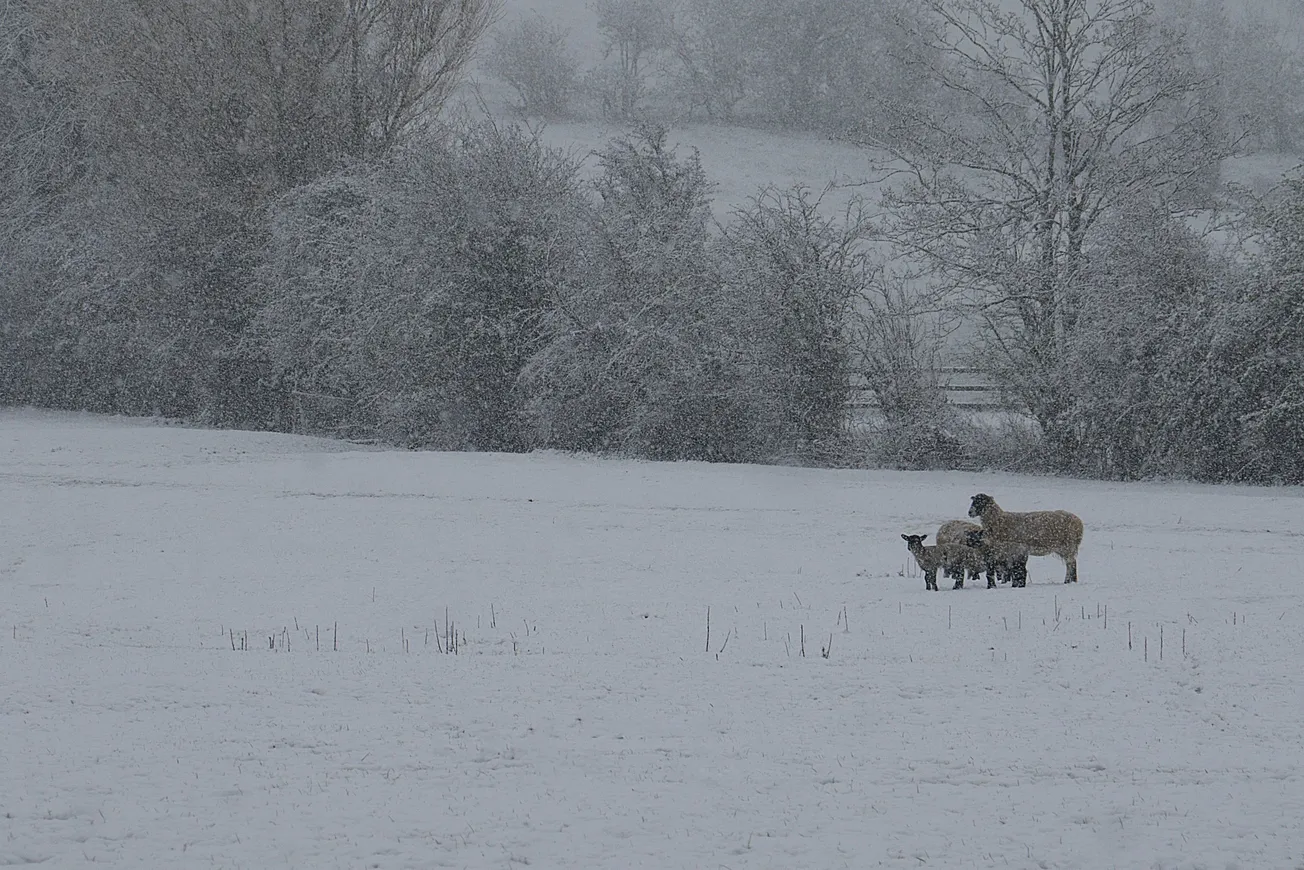Table of Contents
Viv Forbes
saltbushclub.com
Viv Forbes is a geologist, financial analyst and weather watcher with long experience in Australian rural and mining industries.
Green alarmists are fanning a firestorm of fear about man-made global warming.
Earth always cycles between warmth and cold. Every recent warm period (Medieval Warming, Roman Warming etc) was a time of plenty for all life on Earth, whilst cold periods like the Little Ice Age saw crop failures, famine, migrations, invasions, disease and death.

Data from Greenland Ice Core (GISP-2 (Greenland). From “The Inconvenient Skeptic” 2011, p 137, by John Kehr
Sea levels rise as ice sheets melt, and fall as they rebuild. Coastal dwellers and offshore coral reefs must always migrate landward or seaward, or north/south, following the climatic environment they prefer.
Warming/cooling phases are triggered by solar system cycles which are often accompanied by volcanism. These drivers are far more powerful than any human influences.
Oceans cover over 70% of Earth’s surface and dominate our weather and climate. When the sun or the volcanic trenches and rings-of-fire warm the oceans, two things happen. Firstly, water evaporates to form more clouds which shade, cool and rain on the Earth. Secondly, CO2 plant food is expelled into the atmosphere, like CO2 bubbles leaving a warming beer. This makes the oceans more alkaline.
With the additional moisture and CO2 plant food in the atmosphere, all plants benefit – forests expand, deserts shrink and grasslands, crops and marine plants flourish. All animals that live on plants or on grazing animals are also well fed. Soon farmers, graziers, foresters, fishermen, city dwellers and tax collectors welcome better times.
But climate is never still – changing climate and variable weather are normal conditions on Earth. For the last million years, Earth has basked in recurring short Warm Periods (about 12,000 years) followed by long brutal Frigid Periods (about 80,000 years).

Reconstruction of Earth’s temperature for the last million years using stable oxygen isotope data from deep sea sediments. From “The Inconvenient Skeptic” 2011, p 38, by John Kehr.
Evidence from the Greenland Ice Cores shows that Earth’s 1000 year average temperature peaked about 7,500 years ago and has been trending down for over 3,000 years. There are always short term fluctuations but we are past the warming peak. We live now in the latter days of the Holocene Warm Period. There may be short bursts of warming, but the big trend is down. A frigid period lies ahead.

Reconstruction of Earth’s temperature for the last million years using stable oxygen isotope data from deep sea sediments. From “The Inconvenient Skeptic” 2011, p 38, by John Kehr.
As cyclic solar heating declines, land cools quicker than the deep oceans. Moisture will still evaporate from the warm oceans and fall on the cooling land as rain and snow. Snow and ice will again advance over the northern grain belts. Continued evaporation triggers cooling of the oceans which then re-absorb atmospheric moisture and CO2.
Plants always suffer greatly in the developing cold, dry, CO2-starved atmosphere. And when plants suffer, animals and humans face hunger and famine.
Industries and cities powered by coal, oil, gas and nuclear power are largely immune to changing climate. However we are making a huge climate gamble by demonising reliable hydro-carbons and nuclear power and rushing into intermittent, climate- dependent energy such as wind and solar propped up by “humungous batteries”.
The Holocene Warming is almost over.
After today’s bountiful warmth comes the cold, dry, hungry phase of Earth’s climate.
Fruitful warmth is no threat. Bitter cold is the real menace.
Further Reading
- “The Inconvenient Skeptic” 2011 by John Kehr
- “Global Warming – a boon to Humans and Other Animals”
- And “Climate of Fear” by Thomas Gale Moore
- Hoover Institution.
- Cold Kills, and Green Energy Does More Harm than Good:
- Climate Change and Health
- Humungous batteries will be mainstream feature of renewable grids, says Tesla:
- Deserts Greening from rising CO2:
- Gone with the wind: why electricity shortages are becoming the norm:









